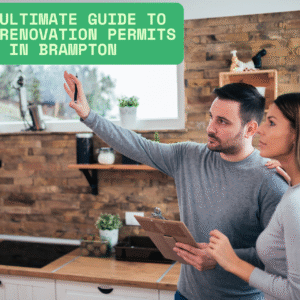Hot water is one of those everyday luxuries that many of us take for granted—until the system fails. Whether you’re building a new home, upgrading an old unit, or dealing with a cold shower, understanding the basics of tank water heater installation and repair can save you time, money, and discomfort.
For homeowners in Scottsdale, AZ, where extreme temperatures and hard water are common, having a reliable water heater is essential. This guide covers expert tips on installing, maintaining, and repairing tank-style water heaters, along with insights into when a tankless system might be worth the investment.
Why Choose a Tank Water Heater?
Tank water heaters have been a reliable household fixture for decades in cities like Scottsdale, AZ. These systems work by storing hot water in an insulated tank, ready for use at any time. They’re known for:
- Affordability
- Straightforward installation
- Compatibility with most plumbing systems
- Simpler maintenance compared to tankless systems
While newer technologies like tankless water heater installation are growing in popularity, tank systems are still ideal for families with consistent hot water needs and limited installation budgets.
Choosing the Right Tank Size
Before beginning tank water heater installation, it’s important to select the correct size:
- 30–40 gallons: Ideal for 1–2 people
- 40–50 gallons: Best for 3–4 people
- 50–80 gallons: Recommended for larger households
Oversizing leads to wasted energy, while undersizing causes water shortages. For homes in Scottsdale, AZ, it’s also smart to factor in water hardness and climate, as these can impact heater efficiency over time.
Installation Tips for Long-Term Reliability
Installing a water heater isn’t just about connecting a few pipes. It requires proper placement, safety checks, and adherence to local codes. Here are some professional tips:
1. Choose the Right Location
Install the unit in a dry, accessible area near existing plumbing and electrical lines. Ensure it’s on a stable surface with adequate drainage and ventilation.
2. Install a Drip Pan and Pressure Relief Valve
These features prevent water damage and ensure safe operation. Local regulations in Scottsdale often require these elements.
3. Use Dielectric Unions
These help prevent corrosion at the connection points between dissimilar metals, extending the life of your heater.
4. Secure the Heater Properly
In areas prone to seismic activity or shifts in foundation (common in Arizona), it’s essential to anchor the heater securely.
While DIY installation may seem doable, it’s often best to hire a licensed plumber for tank water heater installation and repair to avoid code violations or safety issues.
Common Issues That Require Tank Water Heater Repair
Even the best water heaters can run into problems over time. Here are some of the most common signs you need tank water heater repair:
- No hot water: Often caused by a faulty thermostat, heating element, or pilot light
- Leaking tank: May signal internal corrosion or faulty fittings
- Discolored water: Rusty or brown water often points to tank corrosion
- Strange noises: Banging or rumbling typically comes from sediment buildup
- Low water pressure: Could result from scale buildup or aging pipes
In Scottsdale, where mineral-heavy water is common, regular flushing and descaling are essential maintenance tasks that help prevent these issues.
When to Consider a Tankless Upgrade
If your current tank model is outdated or you’re renovating your home, it may be time to explore tankless water heater installation. These systems offer:
- Unlimited hot water on demand
- Up to 30% energy savings
- Space-saving designs
- Longer lifespans than traditional tank systems
However, it’s important to weigh the tankless water heater installation cost, which can be significantly higher upfront—often ranging from $2,000 to $4,500 depending on the unit and labor involved. Installation also requires upgraded gas lines or electrical systems in many cases.
DIY vs. Hiring a Professional
While some homeowners feel comfortable replacing a water heater themselves, hiring a licensed plumber is strongly recommended for both tank water heater installation and repair. Here’s why:
- Compliance with Scottsdale building codes
- Correct gas, electric, and water line connections
- Safe disposal of the old unit
- Professional advice on capacity and energy efficiency
- Warranty protection through certified installation
A professional ensures your system is safe, efficient, and built to last especially in a region like Scottsdale, where extreme summer heat can impact home systems.
If you’re looking for an experienced local company, Heatwave Water Heater Service is known for dependable tank and tankless water heater solutions in Scottsdale, AZ, offering installation, repair, and maintenance with upfront pricing and excellent service.
Final Thoughts
Having a functioning water heater is essential for comfort and convenience. Whether you’re looking to replace your old unit or facing an urgent repair, understanding the basics of tank water heater installation and repair helps you make smart decisions and protect your investment.
In Scottsdale, AZ, regular maintenance and professional service can greatly extend the life of your water heater, improve energy efficiency, and keep unexpected breakdowns at bay. While tankless options offer modern upgrades, traditional tank models remain a reliable and cost-effective solution for many homes.
FAQs
- How long does a tank water heater typically last?
Most last 8–12 years with proper maintenance. Annual flushing helps extend lifespan. - Can I install a tank water heater myself?
It’s possible, but professional installation is recommended for safety, warranty, and code compliance. - How much does tank water heater installation cost in Scottsdale, AZ?
Installation usually ranges from $800 to $1,500, depending on the unit size and local labor rates. - What’s the difference between tank and tankless water heaters?
Tank systems store hot water; tankless systems heat it on demand. Tankless units cost more but save energy. - How often should I flush my tank water heater?
At least once per year—especially in hard water areas like Scottsdale—to prevent sediment buildup and corrosion.





